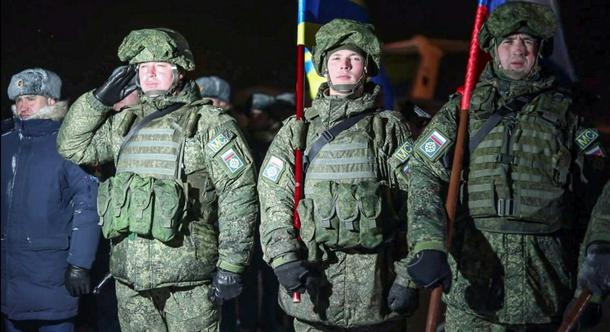Russian troops leave Kazakhstan as state of emergency ends
Almaty (Kazakhstan) (AFP) – A Russia-led military contingent completed its withdrawal from Kazakhstan as the country lifted a state of emergency Wednesday after unprecedented unrest in the Central Asian state.
The Russian defence ministry said that four military planes carrying its last remaining troops had departed from the capital Nur-Sultan and Kazakhstan’s largest city Almaty.
“The last units of the peacekeepers and the command of the Russian peacekeeping contingent headed by Colonel General Andrei Serdyukov will return home on these planes,” it said, according to Russian news agencies.
Images published by the Russian defence ministry showed military airplanes landing at an airport in the southern Russian city of Ulyanovsk, where a ceremony was held to mark the troops’ return.
Ex-Soviet Kazakhstan has been roiled by clashes that followed peaceful protests over a New Year fuel price increase and which left at least 225 people dead, including 19 fatalities among servicemen.
Troops from the bloc that includes ex-Soviet states Armenia, Belarus, Tajikistan, Kyrgyzstan, Kazakhstan and Russia began arriving on January 6 following an invitation from President Kassym-Jomart Tokayev. The withdrawal began on Thursday.
Serdyukov confirmed the completion of the mission under the auspices of the Collective Security Treaty Organisation (CSTO), a six-member military bloc led by Moscow.
“The peacekeeping operation…on the territory of the Republic of Kazakhstan has been completed,” said Serdyukov.
The withdrawal comes on the same day that oil-rich Kazakhstan ended states of emergency across the country imposed after violence erupted that authorities blamed on bandits and “terrorists”.
Unity and Integrity
Confirming the end of the state of emergency at midnight, Tokayev’s spokesman Berik Uali said that “the unity and integrity of the people, law enforcement agencies and military” had ensured the restoration of order and peace in Kazakhstan.
“May there be peace and goodness in our country always!” Uali wrote on Facebook.
The situation remained tense however in Almaty Wednesday where AFP correspondents observed police blocking access to several central roads after a banned opposition group called for protests.
The violence that unfolded in Kazakhstan remains shrouded in mystery, with evidence of an elite power struggle complicating the government’s narrative regarding the involvement of terrorists with international links.
On Tuesday, Tokayev’s mentor Nursultan Nazarbayev, 81, was shown speaking for the first time since the crisis began to deny that he was in conflict with the man he handpicked to replace him as head of state in 2019.
“President Kassym-Jomart Tokayev has full power,” Nazarbayev said in a video address and adding that there is “no conflict or confrontation between elites”.
Calling the violence “a lesson for all of us”, Nazarbayev added that, “It is important to find out who organised all these pogroms and murders”.
It was not clear when Nazarbayev’s address, which appeared on his official website, was recorded.
Recent days have seen Nazarbayev’s in-laws and relatives leave top government and corporate posts in moves that appear to weaken the former first family’s vice-like grip on politics and over Central Asia’s largest economy.
Authorities last week announced the arrests on coup-plotting charges of a former national security chief close to Nazarbayev and two of his deputies.
Media reports state that the Nazarbayevs have an impressive portfolio of wildly expensive luxury properties abroad.



